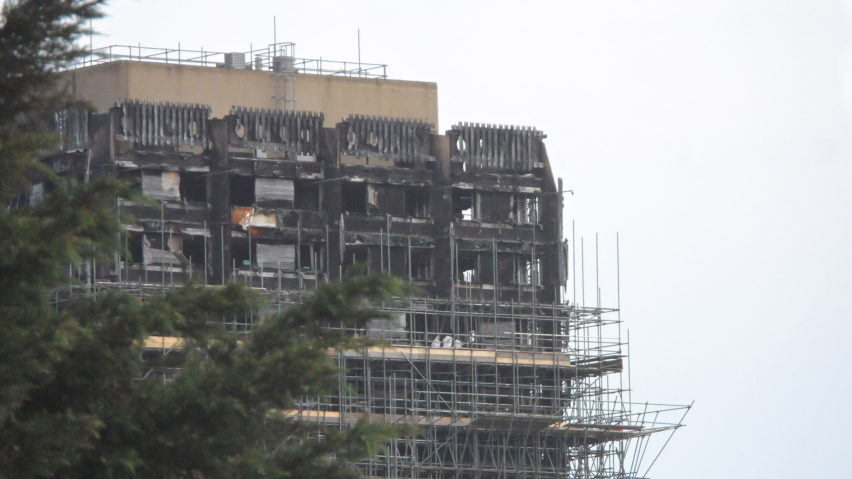
UK ban on combustible building materials will "slow down use of engineered timber"
The UK government has released details of its ban on combustible building materials in the wake of the Grenfell Tower tragedy, revealing that it will limit the use of cross-laminated timber in construction.
The legislation, titled Final Impact Assessment: Ban on combustible materials in external wall systems, was published today by the Ministry of Housing, Communities and Local Government.
It confirms that no combustible materials will be permitted on the external walls of any new buildings taller than 18 metres. They will also be banned in renovations of existing buildings.
As well as housing buildings, it will apply to student accommodation, registered care homes, hospitals and boarding school dormitories.
Timber banned on exterior of tall buildings
The policy limits the use of materials to those with a European fire rating of Class A1 or A2, and states explicitly that wood products do not come under this classification.
"The policy prohibits the use of timber materials in the external wall of buildings within the scope," it states.
Engineered timber, particularly cross-laminated timber (CLT), is increasingly being championed in architecture as a sustainable alternative to steel and concrete structural frameworks. According to the legislation, its use will now be limited.
"Engineered timber offers an alternative to traditional methods of construction in buildings within the scope of the policy," it states. "It is therefore likely to slow down the use of engineered timber in future development in the medium to long term."
Local councils can now protect at-risk towers
James Brokenshire, who is secretary of state for communities, proposed the policy earlier this year after an official review confirmed that combustible cladding contributed to the fast spread of the fire at Grenfell Tower in 2017, which killed 72 people.
As well as limiting the use of flammable materials on new-build and renovation projects, it gives local councils the power to order the removal of cladding from any existing buildings that are considered to be at risk.
Sixty buildings failed safety checks carried out in the wake of Grenfell, meaning that the tragedy could potentially have been repeated.
The government has already pledged to cover the cost of stripping ACM cladding, like the type used on Grenfell Tower, on all social sector buildings above 18 metres. However, there are reports of owners passing on the cost of safety works to residents.
Policy will make buildings safe "without delay"
The new legislation comes into effect on 21 December 2018.
Brokenshire said it will allow all tall buildings to be made permanently safe "without delay".
"Everyone has a right to feel safe in their homes and I have repeatedly made clear that building owners and developers must replace dangerous ACM cladding. And the costs must not be passed on to leaseholders," said Brokenshire.
"My message is clear – private building owners must pay for this work now or they should expect to pay more later."
RIBA welcomes legislation
The Royal Institute of British Architects has welcomed the legislation, describing it as "vital" to ensuring the safety of housing across the country.
"The legislation laid out today is a welcome outcome from a lengthy consultation," said Jane Duncan, former RIBA president and chair of the institution's Expert Advisory Group on Fire Safety.
"It is of the utmost importance that we get this right – for the victims of such a devastating tragedy and for the future safety of our homes," she said.
Duncan suggested the policy could be expanded to cover more building types and urged the government to introduce stricter regulation on fire-safety systems.
"I am pleased that the government have taken recommendations on board and broadened the cladding ban to include other high-risk buildings such as hospitals, residential accommodation and care homes. We would like to see other high-risk buildings included, such as hotels and hostels, which are specifically exempted from the legislation," she said.
"There is still more to do to ensure that buildings are as safe as possible. The government should address the RIBA's recommendations on sprinklers, alarm systems and alternative means of escape in all residential high-rise buildings."
Photo of Grenfell Tower is courtesy of Wikimedia Commons.